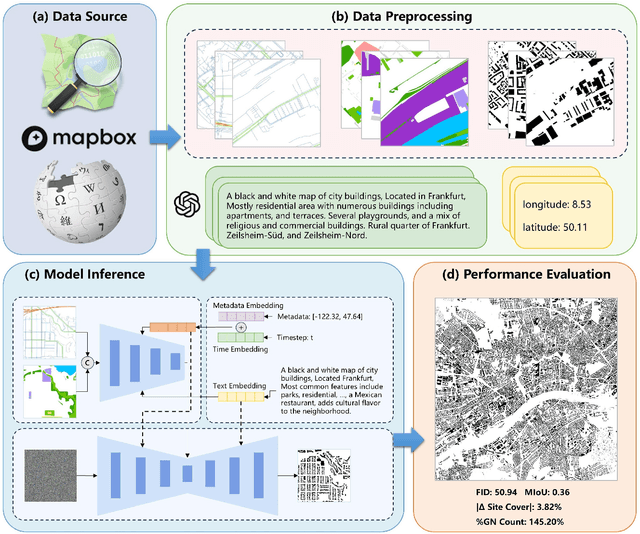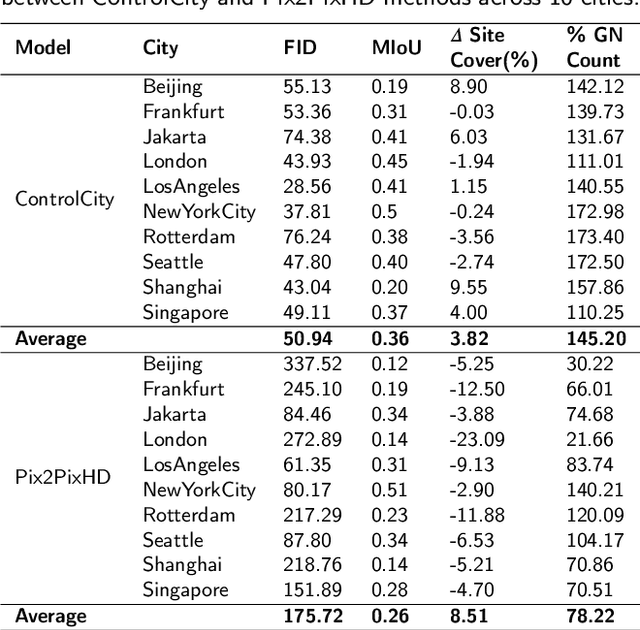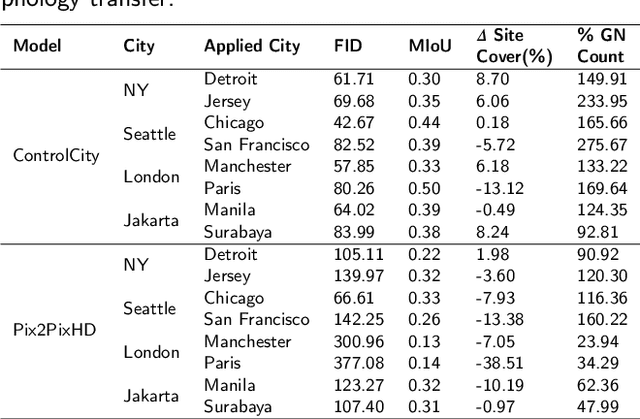Fangshuo Zhou
ControlCity: A Multimodal Diffusion Model Based Approach for Accurate Geospatial Data Generation and Urban Morphology Analysis
Sep 25, 2024



Abstract:Volunteer Geographic Information (VGI), with its rich variety, large volume, rapid updates, and diverse sources, has become a critical source of geospatial data. However, VGI data from platforms like OSM exhibit significant quality heterogeneity across different data types, particularly with urban building data. To address this, we propose a multi-source geographic data transformation solution, utilizing accessible and complete VGI data to assist in generating urban building footprint data. We also employ a multimodal data generation framework to improve accuracy. First, we introduce a pipeline for constructing an 'image-text-metadata-building footprint' dataset, primarily based on road network data and supplemented by other multimodal data. We then present ControlCity, a geographic data transformation method based on a multimodal diffusion model. This method first uses a pre-trained text-to-image model to align text, metadata, and building footprint data. An improved ControlNet further integrates road network and land-use imagery, producing refined building footprint data. Experiments across 22 global cities demonstrate that ControlCity successfully simulates real urban building patterns, achieving state-of-the-art performance. Specifically, our method achieves an average FID score of 50.94, reducing error by 71.01% compared to leading methods, and a MIoU score of 0.36, an improvement of 38.46%. Additionally, our model excels in tasks like urban morphology transfer, zero-shot city generation, and spatial data completeness assessment. In the zero-shot city task, our method accurately predicts and generates similar urban structures, demonstrating strong generalization. This study confirms the effectiveness of our approach in generating urban building footprint data and capturing complex city characteristics.
 Add to Chrome
Add to Chrome Add to Firefox
Add to Firefox Add to Edge
Add to Edge